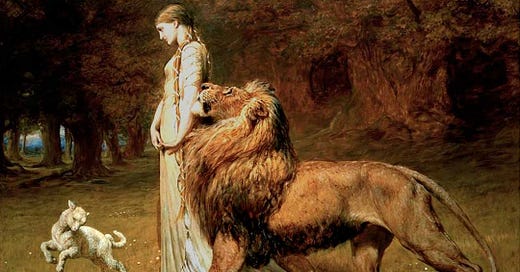Let’s talk about that which is best.
Your life, thanks be to God, is full of good things, things to be grateful for. Your ongoing, eternal education is one of those good things. We should be grateful for all good things in our lives, but also recall that that which is good is not necessarily best.
In this note, I want to encourage you to be generous and optimistic in your studies, as opposed to self-indulgent and cynical; i.e. I urge you to be seeking, with head high, that which is best.
In the third chapter of his Epistle to the Philippians, St. Paul urges us to live up to what we have already attained. He says that he has not yet attained the resurrection, nor is he yet perfect, but he presses on toward Christ and the upward call of God. Paul’s desire is ever to go further up and further in. The more-and-moreness of his thinking and his desires is what he urges us to imitate in that same chapter.
Paul has found a good thing, a great thing, and yet he always wants more. He wants to live up to the Good, he wants to walk in the Good, further up and further in.
Think about what that means. To be content, but ever striving. To have an appetite whetted by Good, but craving more: that which is Best.
Stand with Aristotle, Marcus Aurelius, Clement of Alexandria, Augustine, and C. S. Lewis: ask not what is good (or God forbid, what is good enough), ask what is best. Ask all the other questions as well, like how is best, when is best, why is best, who is best.
The logic of truth, beauty, and goodness drive us toward the best. The desire for good ought to be a living and dynamic thing. If it is not, “good” will turn to “good enough”.
Instead of asking if you’re succeeding, ask if your soul is growing. Don’t ask if you’re getting an A or know more than this pastor or that professor, ask if you’re learning something and being changed by it. You will have a much better time, and a far more gracious time, if you seek the best. And it’s up to you, by God’s kindness. The following is from Marcus Aurelius’ Meditations, 5.20 and 5.21:
Now it is true that [men, beasts, the weather] may impede my action, but they are no impediments to my affects and disposition, which have the power of acting conditionally and changing: for the mind converts and changes every hindrance to its activity into an aid; and so that which is a hindrance is made a furtherance to an act; and that which is an obstacle on the road helps us on this road.
Reverence that which is best in the universe; and this is that which makes use of all things and directs all things. And in like manner also reverence that which is best in thyself; and this is of the same kind as that. For in thyself also, that which makes use of everything else, is this, and thy life is directed by this.
Insistence on not being satisfied with yourself will lead to much greater contentment with yourself.
Finally, it is better to be a Quixote than a Candide.




Interesting to contemplate this approach to living.
I do not (yet) understand the reference to Quixote and Candide because I have not read it, but I love this conversation and hopefully, application. Thankful for you, sir!